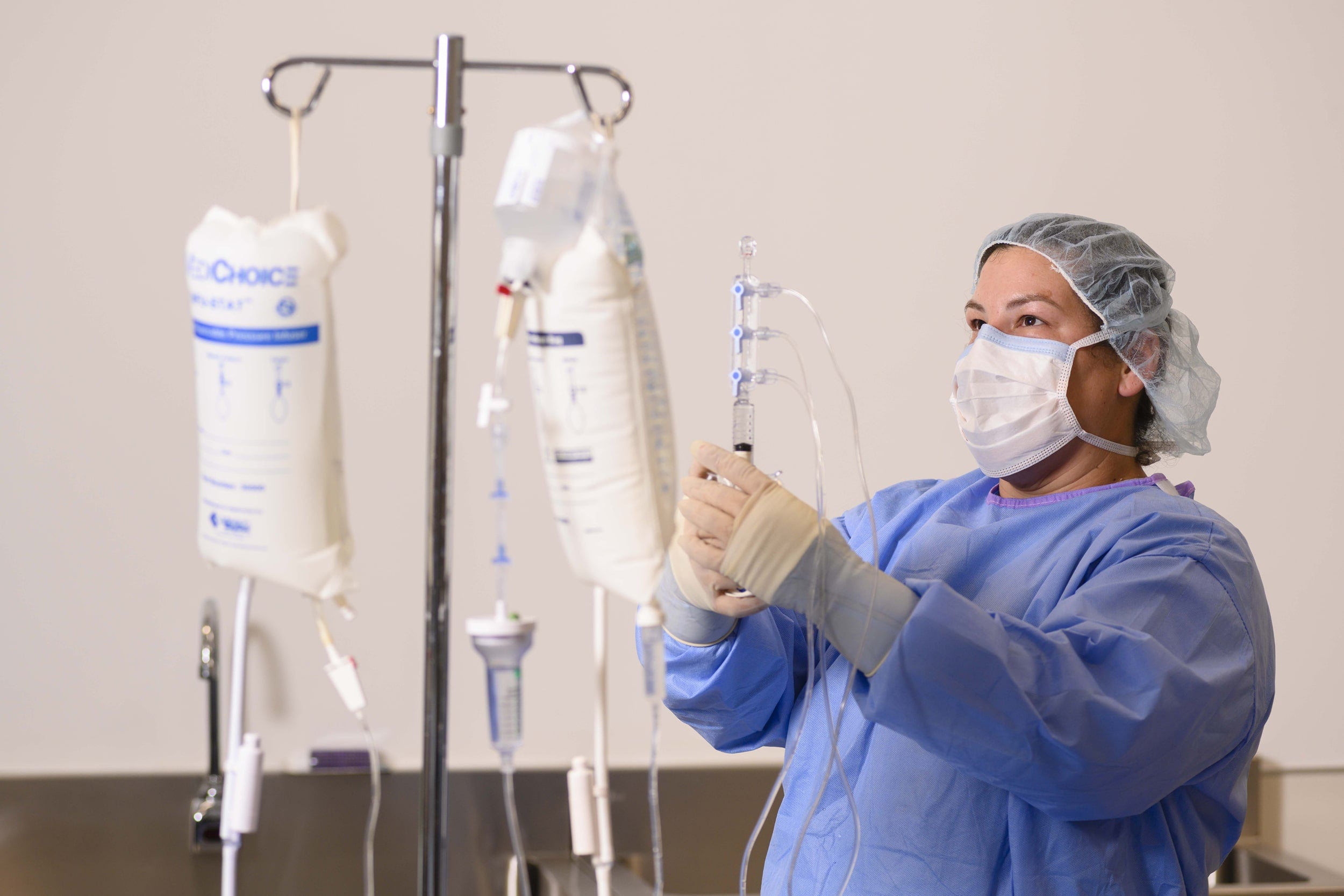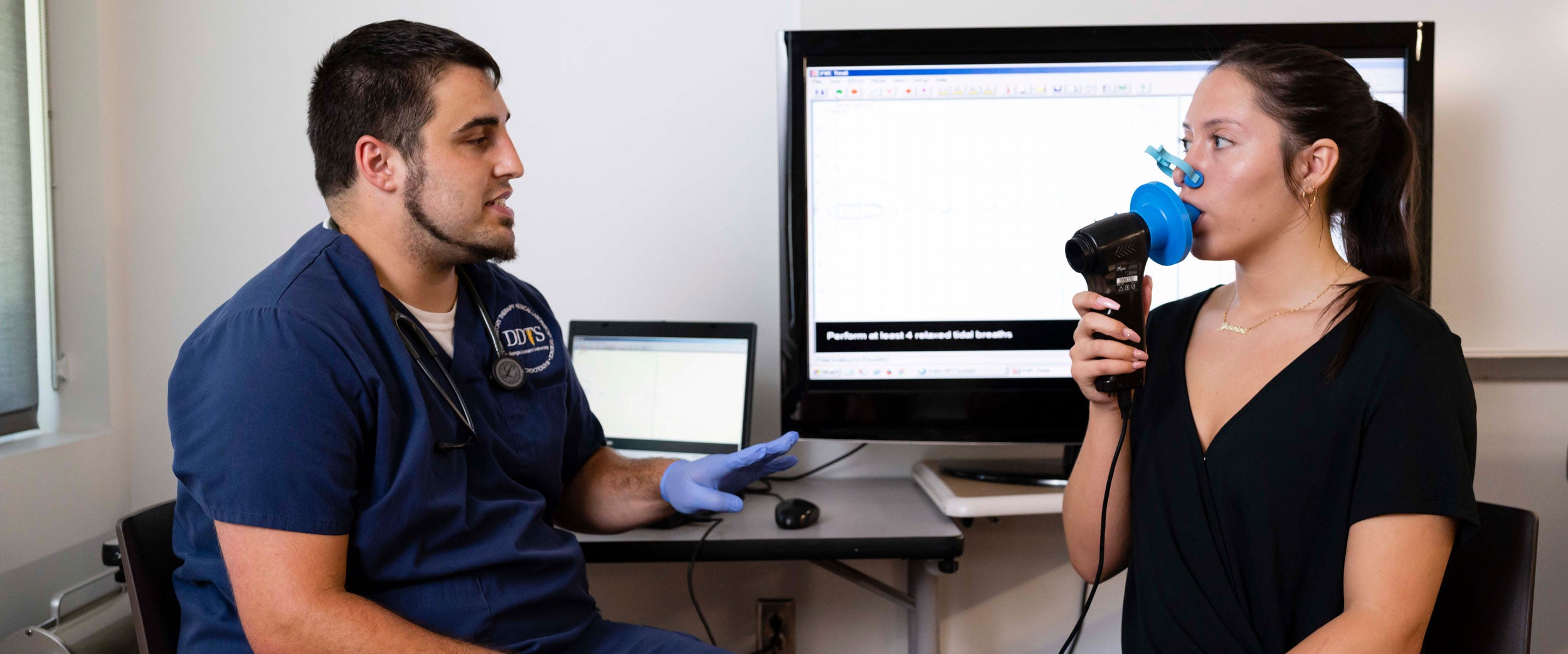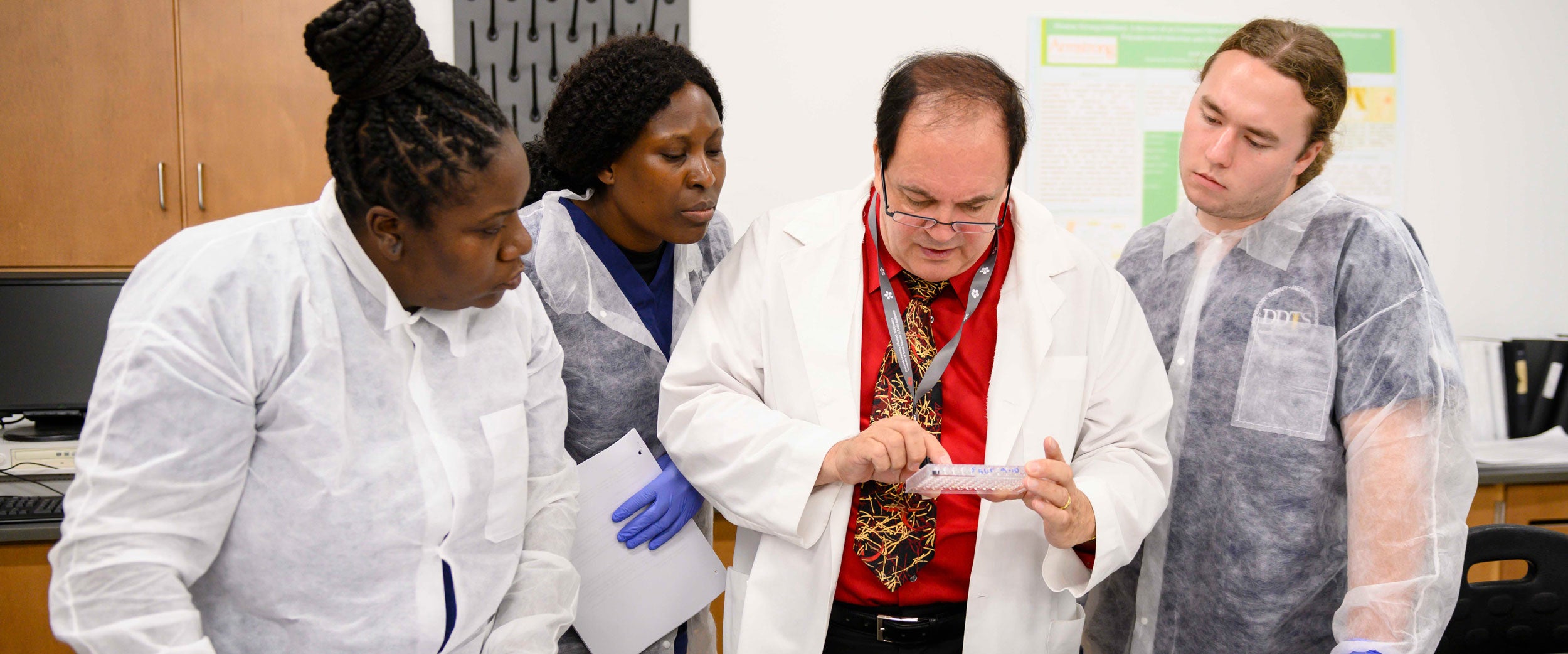Advance a fulfilling career in medical imaging by specializing in the cardiovascular system, helping physicians and radiologists provide care.
Locations
- Armstrong Campus (In Person)
Why Concentrate in Cardiovascular Interventional Science at Georgia Southern?
- The U.S.’s only accredited baccalaureate invasive cardiovascular technology program.
- Complete five clinical rotations at some of the Southeast’s most prestigious clinics.
- Develop high-demand medical skills that can help improve patient outcomes.
- 100% pass rate on national credentialing exams and 100% job placement.
- 130 credit hours to completion.
Cardiovascular interventional technologists capture images of the heart and blood vessels to help physicians diagnose and treat cardiovascular diseases. Cardiovascular interventional science (CVIS) is a specialized field of medicine that relies on medical imaging to guide minimally invasive procedures that improve patient outcomes and save lives.
The CVIS program at Georgia Southern gives you specialized skills within the bachelor’s degree in radiologic sciences. You’ll learn how to conduct advanced medical imaging and work closely with specialists to help treat heart and vascular disease.
Our program is the only accredited baccalaureate invasive cardiovascular technology program in the United States. For the last several years, Georgia Southern graduates have achieved 100% pass rate on national credentialing exams and 100% job placement.
Ready to Apply?
What Can You Do with a Concentration in Cardiovascular Interventional Science?
As the population’s health needs change, the demand for cardiovascular interventional technologists (CVITs or cardiovascular invasive specialists) is growing rapidly. The CVIS program prepares you for several different roles in the specialized field of cardiovascular health care, including cardiovascular invasive specialist, cardiac catheterization technologist and electrophysiology technologist, as well as others.
You’ll work in interventional cardiology suites, cardiac cath labs, vascular hybrid suites and neurovascular arenas helping to provide precise diagnosis and treatment. Because these professionals play such a critical role in supporting patient outcomes, you can expect a fast-paced yet fulfilling environment where your work really matters.
Where our graduates work:
- Mayo Clinic
- Kaiser Permanente
- St. Joseph’s
- GE Healthcare
- Atrium Health
- Emory Healthcare
- Children’s Healthcare of Atlanta
- AdventHealth
- Memorial Health
- Wellstar Health System
- Northside Hospital
What our graduates do:
- Cardiovascular radiologic technologist
- Cardiovascular technologist
- Cardiovascular interventional technologist
- Vascular technologist
- Cardiac catheterization technologist
- Cardiovascular invasive specialist
- Peripheral vascular interventional technologist
- Electrophysiology technologist
What You’ll Learn
CVIS students learn the fundamentals of cardiovascular interventional science, imaging and technology, including diagnostic and treatment methods. Your courses will train you in patient care and the clinical setting, before immersing you in supervised clinical rotation at some of the Southeast’s most prestigious clinics.
In addition to core curriculum classes, every radiologic sciences student completes courses on patient care, research methodologies, leadership and management, advanced radiologic science’s and medical communication skills.
See the CurriculumBuild Your Experience
The Georgia Southern Cardiovascular Interventional Science program builds on real-world experiences. You’ll start with guidance from award-winning faculty in our state-of-the-art facilities and then progress to the field in intensive clinical rotations.
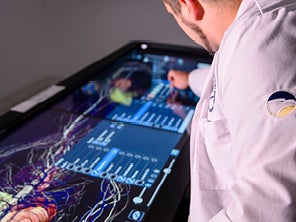
Real-World Experience
Take your skills beyond the classroom as you participate in five clinical rotations where you’ll learn how to provide care for actual patients under close supervision.
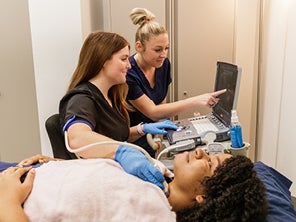
Facilities + Faculty
Work with nationally-recognized faculty scholars and practitioners during clinical experiences and while conducting research.
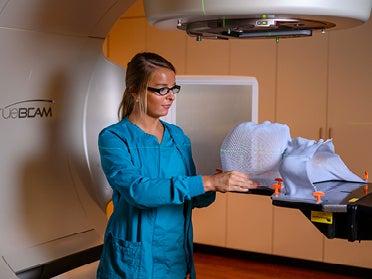
Hands-On Training
Cardiovascular interventional science professionals rely on advanced medical imaging technology. You’ll learn how to operate the same sophisticated imaging equipment in our state-of-the-art Health Professions Academic Building.
Take Action
Applications for the Radiologic Sciences program with a concentration in cardiovascular interventional science are accepted from Nov. 15 through March 1.
Late applications will be considered on a case-by-case basis. Qualified applicants who met the March 1 deadline will be granted priority over applicants who did not meet the initial deadline. Certain programs may continue to review applications after the deadline until the program’s capacity is met.
Admission to Georgia Southern University does not guarantee admission to the concentrations in radiologic sciences. The Department of Clinical Sciences has a separate formal admissions process in addition to the admission process for the University. Applicants must submit a formal application to the program of interest and transcripts of all college and technical school coursework.
Follow these steps to complete the Georgia Southern application:
- Create an application account.
- Complete our online application using the PIN you received after creating your application account.
- Once complete, pay the $30 application fee or upload a valid fee waiver. Previous Georgia Southern applicants and dual enrollment students do not need to pay the fee.
- You can check your application status at My.GeorgiaSouthern.edu/admissions three days after completing your application. This page contains live information about your admission status, including a checklist of missing documents we need to make a decision.
Applicants to the Radiologic Sciences program must meet these minimum admission requirements:
- Acceptance into Georgia Southern University.
- Complete and pay the Allied Health Centralized Application Service (AHCAS) Application.
- Complete the TEAS-AH exam and submit the results by March 1. Applicants may contact the Georgia Southern University Testing Services at 912-344-2582 or visit MCC 206 for more information or to schedule the exam.
- Achieve a cumulative GPA of 2.5 or higher for all college work. Applicants with less than a 2.5 may be considered under special circumstances.
- Special Options (second certification) applicants must provide proof of ARDMS, ARRT or NMTCB certification.
- Students who are admitted to the program are strongly encouraged to complete the remaining core courses during the summer semester before the start of the program. Failure to meet all core requirements before beginning the program may delay your graduation.
- Prior to applying to the program, you must complete the following:
- 50 semester hours of core degree requirements, which include two college English composition courses and college algebra or higher.
- Required lab sciences (significant preference for admission will be given to those applicants that have completed all of the five required sciences):
- Cardiovascular interventional science students – Must include Human Anatomy and Physiology I with lab and three additional lab sciences in the program of study.
Applicants not meeting the criteria stated above may apply and will be considered under special circumstances at a later date.
A new class begins in August (fall semester) each year. Applications will be considered on a competitive basis, and written notification of acceptance will begin in late March (no one will be notified of acceptance by phone). Applications received after the submission deadline will be considered only if seats are available. The amount of completed coursework, the number of science courses completed, entrance exam scores and GPA determine competitiveness. Additional points may be awarded for completion of selected coursework in the major. Interviews may be required for qualified candidates. Please see your advisor for details.
Please note that prior conviction of a felony or misdemeanor may prevent you from sitting for the national certification examination. If you have been convicted of either a felony or misdemeanor, you must complete the pre-application review process as prescribed by the certification agency and provide the Department with verification of eligibility for the examination.
Georgia Southern University is an equal-opportunity education institution and does not discriminate based on sex, race, age, religion, sexual orientation, disability, or national origin in employment, admissions or activities.
Apply as a First-Year Student Transfer to Georgia SouthernThe cardiovascular interventional science concentration is accredited by the Commission on Accreditation of Allied Health Education Programs upon the recommendation of the JRCCVT.
CAAHEP
9355-113th St. North, #7709
Seminole, FL 33775
Phone: 727-210-2350
Fax: 727-210-2354
caahep.org
The Department of Clinical Sciences anticipates that graduates of this program will seek the following professional state licenses or national certifications: registered cardiovascular invasive specialist (RCIS) and state licensure.
The Department of Clinical Sciences has determined that the required classes and educational activities of this academic program will qualify a graduate of this program to take the Cardiovascular Invasive Professional Certification Examination. The department has not determined whether this program satisfies the requirements of all states and territories for the RCIS or state licensure. Visit Cardiovascular Credentialing International to determine the requirements of your state or territory.
Georgia Southern makes every effort to ensure information about educational requirements for licensure or certification is current; however, state requirements may change. Separate from educational requirements, state licensure boards may require applicants to complete professional examinations, background checks, years of professional experience, residence requirements, jurisprudence exams, training, etc. For more information, as well as for a list of applicable state boards, visit the Georgia Southern State Authorization and Professional Licensure page.
Many of the clinical programs offered by the Waters College of Health Professions require a clinical internship or practicum experience to fulfill degree requirements. Pursuant to the University’s legal agreements, participants in clinical experiences are required to abide by the workplace rules of the clinical site. Sometimes these rules include vaccination requirements. As always, WCHP will continue to make every effort to place students at clinical sites. However, please be aware that we may be unable to locate a site to accept unvaccinated students, which may cause a delay or inability to progress and complete the program of study.
Related Programs
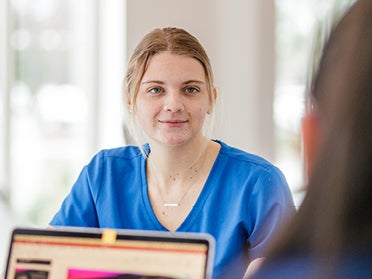
Take the Next Step
Help heal hearts as an invasive cardiovascular technologist. Learn more about the cardiovascular interventional science concentration at Georgia Southern.
Contact Us
Radiologic Sciences
Phone: 912-344-2550
radsci@georgiasouthern.edu
Department of Clinical Sciences
Georgia Southern University Armstrong Campus
Department 4902
11935 Abercorn Street
Savannah, GA 31419

